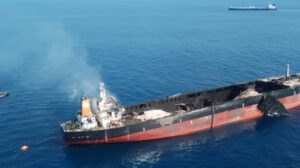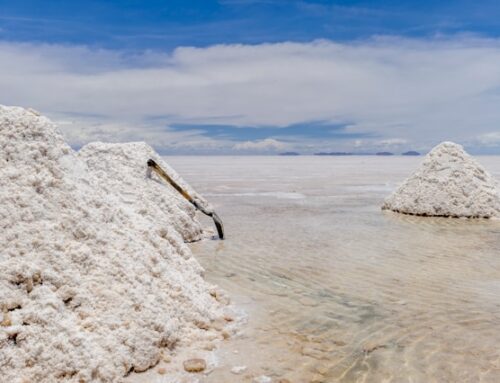
The term “dark fleet” refers to a group of tankers that engage in dark activities, such as disabling their AIS, or using deceptive shipping practices – like GNSS manipulation, ID, and location tampering – to transport crude oil, chemicals, and other wet cargo. Weak ownership structures and using multiple flags of convenience over short periods characterize the fleet. The size of this fleet has fluctuated substantially with each new regulation, and even more so following the Russian oil ban and price caps. Windward has identified approximately 1,100 dark fleet vessels. While the practice has been around for years, originating with trade from Iran and Venezuela, it has become a much bigger problem since the Russian invasion of Ukraine, as Russia avoids sanctions and sells oil to its allies. According to estimates by CNN, more than 10% of large tankers are involved in this illegal practice, and the numbers are steadily growing.
Impact on Global Oil Prices
The dark fleet has a significant impact on global oil prices. Sanctioned oil producers face stronger incentives to increase sales amid a rise in international crude prices, taking advantage of a growing dark fleet while Western regulators struggle to crack down on the illicit activity. The number of such operations, known as dark ship-to-ship transfers, reached 792 globally in the third quarter, up from 615 between April and June 2 said S & P Global platts.
The acceleration of opaque transfers at sea came as international crude prices were climbing on the back of production cuts by OPEC and its allies. “Rise in the price of crude oil provides higher potential profits for those traders able to circumvent or violate sanctions,” said Isaac Levi, an analyst at the think tank Centre for Research on Energy and Clean Air. In total, 115.2 million barrels of crude and oil products were potentially transferred via dark STS globally in Q3, up from 93.9 million barrels in Q2 and 55.5 million barrels in Q3 2022.
Beneficiary Countries
Countries that are under international sanctions or have strained relations with the international community often benefit from the activities of the Dark Fleet. These include countries like Iran, Venezuela, and North Korea. They use the dark fleet to circumvent sanctions and continue their oil trade.
Moreover, countries that are willing to buy oil at a lower price also benefit from the dark fleet. These countries often turn a blind eye to the source of the oil, thereby indirectly supporting the activities of the dark fleet.
Impact on the Insurance Industry
The International Union of Marine Insurers (IUMI) has warned that the growing “dark fleet” of sanctions-evading tankers poses a new threat to the insurance sector, as well as the safety of navigation and the marine environment. The illegal nature of the business makes it impossible to use reputable crew managers and arranging proper insurance is difficult as well.
These are largely older ships, and their operating practices do not align with industry standards. Many show signs of improper maintenance, have missed their inspections, or operate with their AIS transponders turned off, raising the risk of a spill or collision. Many others have a “severe lack of insurance,” posing a financial risk to others in the event of a casualty. For insurers, the hazards are concrete: accidents involving the dark fleet have already occurred, and if a multi-vessel casualty involving a questionable tanker should happen, it is unclear what the impact would be on legitimate insurers.
Conclusion
The dark fleet represents a significant challenge to the global economy and the environment. It undermines international sanctions, destabilizes oil prices, and contributes to environmental pollution. Tackling this issue requires international cooperation and stringent enforcement of maritime laws.
Please note that this information is based on the data available up to 2021 and may not reflect the current situation. For the most accurate and up-to-date information, please refer to the latest news articles or official reports.


